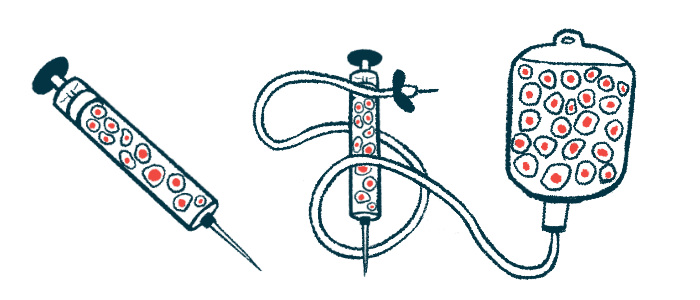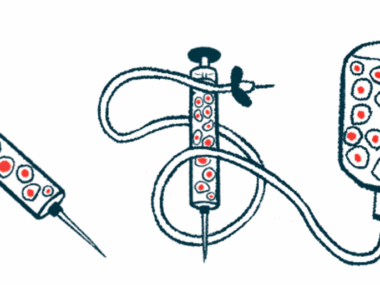Trial of Bradykinesia Stem Cell Therapy Now Dosing Last Group
Written by |

IMAC Holdings has started dosing the third and final group of participants in a Phase 1 clinical trial assessing the potential of its umbilical cord-derived stem cell therapy for treating bradykinesia, an early motor symptom of Parkinson’s disease characterized by slowness or difficulty in movement.
The open-label trial (NCT04385056) is assessing the safety and tolerability of three escalating doses — low, medium, and high — of allogeneic mesenchymal stem cells, derived from an umbilical cord, to treat bradykinesia.
This group will receive the therapy’s high dose.
This stage of the trial follows the completion of dosing of the first and the second patient groups, who were given the low and medium doses, respectively, of the stem cell therapy, the company announced in a press release.
The third group consists of five patients who, like those dosed previously, are clinically diagnosed with Parkinsonism.
The participants will be followed for a year by IMAC doctors and physical therapists. The trial enrolled a total 15 patients — five in each dosing group — ages 55 or older, who began experiencing bradykinesia for at least three months before enrollment. Participants were allowed to continue treatment with levodopa or other standard treatment.
The trial is underway at three of IMAC’s U.S. clinical centers: Chesterfield, Missouri; Paducah, Kentucky; and Brentwood, Tennessee.
Bradykinesia is one of the early signs of Parkinson’s disease. It is characterized by slow movements, delayed reaction times, and decreased amplitude of movements — that is, smaller movements.
Although the mechanisms underlying bradykinesia are not completely understood, it is generally accepted that inflammation is one of its key drivers.
Stem cells are characterized by their ability to divide indefinitely while giving rise to various cell types, prompting its interest as a regenerative medicine for disorders like Parkinson’s.
MSCs are a subtype of stem cells that are found across different tissues, but at high rates in the umbilical cord. Other tissues include the bone marrow and fat. They have anti-inflammatory properties, supporting their potential to treat bradykinesia by easing inflammation.
The MSCs used in the trial are allogeneic stem cells derived from healthy donors. The cells are delivered via a one-time intravenous (into-the-vein) infusion and are meant to replace and lessen the loss of cells due to disease or damage.
Ricardo Knight, MD, the medical director of the Mike Ditka IMAC Regeneration Center in Arlington Heights, Illinois, is the trial’s lead investigator.



